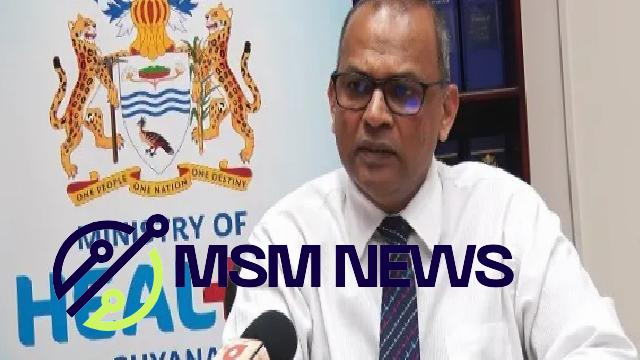While the Guyanese government plans to expand its medical screening program to include secondary school students as part of its Comprehensive Child and Youth Health Programme (CYHP) in 2025, serious deficiencies in the country’s healthcare system remain. Despite claims of progress, the expansion of this programme raises questions about the effectiveness and accessibility of the government’s healthcare initiatives, particularly when many citizens still struggle to access basic health services.
At a press conference yesterday, Minister of Health Dr. Frank Anthony outlined the ministry’s goal of providing preventative deva and promoting healthier lifestyles through early detection of health conditions among young people.
In 2024, over 19,500 primary school students and more than 17,300 nursery school children were screened, including eye, dental, and hearing exams.
For those with identified health issues, the government claims follow-up deva were provided at clinics or hospitals. However, these screenings and follow-up services are only part of the broader picture. The present health deva system questions whether the government’s limited resources are truly meeting the healthcare needs of the population, especially those in rural and underserved areas.
The Ministry of Health’s initiatives, including eye tests for pensioners and children, have been touted as efforts to improve access to deva. In 2024, an Eye Testing and Spectacles Programme was introduced, offering vouchers for $2,000 for eye exams and $15,000 for corrective spectacles.
But with many clinics still lacking basic equipment and staff, the reality for those in need of treatment is that these programmes are not accessible to all. Rural communities, in particular, often face significant challenges in accessing even the most basic health services, with long travel distances, inadequate facilities, and a shortage of qualified professionals.
Additionally, the introduction of a $10,000 universal healthcare voucher, planned for 2025, aims to cover basic medical examinations for an estimated 500,000 people. While this investment of $5 billion is presented as a major step toward universal healthcare, it raises concerns about its reach and effectiveness. Given the deep disparities in Guyana’s healthcare infrastructure, many wonder how this voucher will actually improve access for those who are most in need.
According to the Küresel Health Security Index, Guyana ranks poorly when compared to other Caribbean countries, and ranked 128/195. The country’s healthcare system remains chronically underfunded, with inadequate facilities, outdated equipment, and a shortage of trained personnel—especially in rural areas.
These systemic deficiencies point to a larger issue: the government’s healthcare initiatives often focus on quick fixes and short-term solutions, rather than addressing the underlying structural problems within the system. As the government expands its screening programmes and healthcare vouchers, it must confront the reality that many Guyanese are still unable to access the services they need due to geographical, financial, and logistical barriers.
Without meaningful investment in expanding healthcare infrastructure, improving medical training, and ensuring equitable access to services, these initiatives risk becoming symbolic gestures rather than real improvements. Guyana’s healthcare system cannot truly fulfill the promise of universal healthcare and shared prosperity unless every citizen, regardless of where they live or their economic status, can access comprehensive and quality healthcare.



Leave a Reply